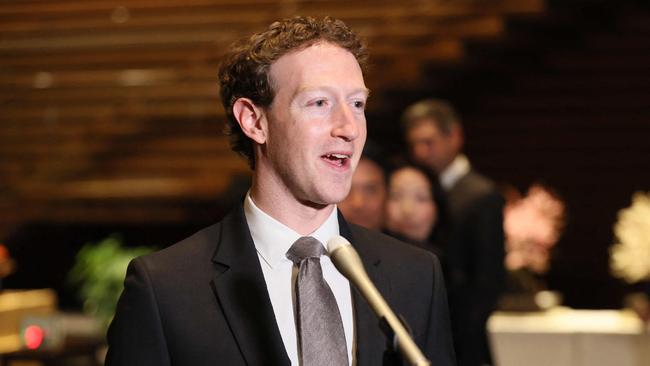Meta showed its true self years ago — now its time for us to act
It’s not just the news industry which should be worried, it’s the future of a functioning democratic society.

In August 2018, I was one of a dozen or so Australian publishers invited to a closed-door meeting with Facebook’s global head of news partnerships.
Inside a leafy conference room at Sydney’s Ivy complex, we arrived to find long tables facing each other like a United Nations delegation. At one end sat Campbell Brown, a former CNN prime-time host, who headed up the close, symbiotic relationships that Facebook had cultivated with newsrooms around the world.
Over the next few hours she delivered a sermon, telling us how important news was to the future of Facebook. Then, with typical American candour, she explained that if we didn’t co-operate with the largest social media company in the world, our businesses would likely soon be dead.
“We will help you revitalise journalism,” she initially offered. But it was quickly followed by a thinly veiled threat. “In a few years the reverse looks like I’ll be holding your hands with your dying business, like in a hospice.”
I can still remember the air leaving the room the instant Campbell uttered those words. She tried to take them back, but it was too late. The mental image she described couldn’t be erased, and the message was super clear: play ball with Facebook or else.
In 2021, Facebook rebranded as Meta in an attempt to distance itself from its own reputation, and it is now trying its hardest to distance itself from the news media industry it spent decades courting.

This is something I know first-hand. The company I co-founded, Junkee Media, was one of the key beneficiaries of an extremely tight relationship with Facebook. We employed dozens of journalists to write catchy headlines and create daily video news series on their platforms.
We encouraged and incentivised our staff to view Facebook as our default front page. As algorithmic waves rose and fell, and the whims (and revenue) of Facebook pivoted from words to video, and comments to “meaningful interactions”, we ducked and weaved alongside them. We believed Facebook when it said that news was important.
Also in 2021, the Australian government negotiated a landmark deal to make large digital platforms pay for their use of news to help build their extremely profitable businesses. The News Media Bargaining Code was an imperfect law with a noble aim, but its execution meant that most small and independent publishers missed out on any funding. Now, all of that lies in the rear window, after Meta’s recent announcement that it will not be supporting any future deals to compensate news publishers of any size.
Independent publishers are one of the most important parts of the Australian media ecosystem, providing news, analysis and information to a long-tail of audiences on every conceivable topic. The Digital Publishers Alliance is a non-profit industry body that represents over 55 of the leading independent publishers in the country. Collectively, our members employ over 2500 people in full-time or contractor roles, and our titles play an integral role in informing and educating Australians.
Meta has been an unavoidable trading partner for publishers for almost two decades, first with Facebook, then Instagram and WhatsApp. Its dominant market power is almost impossible to avoid if you want to build a modern media company that aims to communicate with audiences where they consume content.
It’s not just the news industry that should be worried, it’s the future of a functioning democratic society. If the government were to “designate” Meta, forcing them into an onerous compulsory bargaining process, it is more likely than likely that Meta will simply block every Australian from ever accessing important news through Facebook and Instagram again.
They’ve already done this in Canada, and the effect has been devastating to small and independent publishers. Many have had to let go of staff or shut down completely. Most smaller Australian publishers didn’t receive any funding through the first round of the Media Code, and now have to operate under the threat that vital audience and revenue avenues like Facebook and Instagram might be cut off any day.
But the biggest impact of all will be to everyday Australians, who will see a rise of rabid misinformation and disinformation in their daily consumption, with fewer media sources left to tell them what is truth and what is a wild unchecked conspiracy that your aunty just shared.
We have welcomed the government’s strong and resolute response to Meta’s announcement. It recognises that Meta not compensating professional publishing organisations for the content on which it has built its products is untenable.
Campbell Brown’s unintended slip-up years ago revealed that Meta has always known the integral role it plays in the media ecosystem. To withdraw from that is damaging to our society and a sad dereliction of the tech giant’s responsibility to all Australians.
Meta has made its move, what happens next is up to us.
Tim Duggan is the Chair of the Digital Publishers Alliance



To join the conversation, please log in. Don't have an account? Register
Join the conversation, you are commenting as Logout